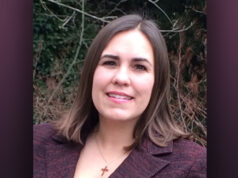Trustees manage assets on a trust. Successor trustees do the same sorts of things that an executor of an estate does, but for a trust. Sometimes it’s the same person. Legacy Estate Planning attorney Steve Waltar joins Suzanne to talk more about living trusts, and this segment focuses on trustees.
Steve says, “A trustee is the manager. They’re the ones that hold legal title and it’s a fiduciary position, meaning they are doing it on behalf of someone else. In a revocable living trust, husband and wife are probably their own trustees, but they’re going to have successors that work after they’re incapacitated or when they die. So that’s kind of what we’re talking about: who who can do this job, how important is this job?”
What qualities should a trustee have? Steve says, “Trustworthy, honest, good communicator, fair, unbiased. I think that the knowledge base is, you want someone that at least understands your kinds of assets. If you’re into lots of fancy buying and selling, if they’ve never had any stock accounts, they’re probably not a good candidate. Now they can hire the financial advisors, the attorneys, the accountants, but they need to have a base level of understanding your types of assets. But as a person, or as an institution, they have to have really high values. They can’t put their interest above the interest of the beneficiaries. They can’t be disorganized.
“Frequently people are listing children… Sometimes you’ll have co-trustees. ‘Well, I know my son would be fair, but he’s just not organized.’ Well, do we bill them as co-trustees — they both have to sign — or is it and/or?
“It’s a thankless job and if someone’s an heir and they charge for doing the work, and it is work, then the other siblings don’t understand it, don’t appreciate it. They think it’s being unfair. Sometimes there’s tension between siblings, and sometimes it is better to have a trustee that’s a bank. Banks are not known for being, you know, sensitive, but at least if they don’t like the bank, that’s a little different than disliking a brother or sister. I think clients often want to avoid the fees. That’s actually the biggest problem. They want to avoid the fees, they figure the kids would do it for free. I’m saying, well, the kids could charge as well, or we might say in the event they act, they get a little bonus, they get a gift. It’s not taxable because when you work, and you declare, that’s gross income to you. They list the family because they figure they’re the beneficiaries. They want to keep it private. They figure everyone gets along. There’s a little saying in estate planning that the planners are the givers — those that do the wills and trusts — and then when someone dies, it’s the takers. They want the money, and they want it now, and they don’t appreciate who’s doing all the work.
“I’ve handled hundreds and hundreds of estates and probates. One time, Bank of America said ‘It’s not big enough. We don’t want to be the personal rep and will you do it?’ And so I did it. I mean, I had to clean out the storage, I had to go get the car, I had to sell the car. I had to do all that stuff that usually an attorney doesn’t do. There’s a lot to consider. We’ve got some lists on things to consider on our website at waltar.com, and they can look that up… Sometimes I just think it’s good for people to interview professional firms. It’s a good idea to just kind of know who’s there, who could do what?”
- Legacy Estate Planning at Answers for Elders
- Legacy Estate Planning website or call 425-455-6788
- More podcasts with Steve Waltar
- Find an attorney near you at the American Academy of Estate Planning Attorneys website
- Check out our affiliate podcast Alzheimer’s Speaks









